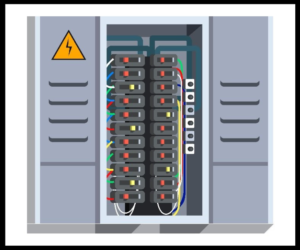
Massachusetts Senior Circuit Breaker Tax Credit
The Massachusetts Senior Circuit Breaker Tax Credit has been around for a long time. But I suspect not everyone who is eligible takes advantage of it.
Once in a while I come across someone, usually a client’s elderly parent, who is unaware they are eligible for this credit. When that happens they can file/amend the last 3 years of tax returns. This results in a $3,000+ windfall.
Taxpayers may be eligible even if they aren’t required to file tax returns. This credit is available to both homeowners and renters.
This article is specific to Massachusetts, but there are similar programs in many other states.
How did they come up with this name?
According to a video from the MA Department of Revenue it is called a circuit breaker credit because “similar to the relief provided by a circuit breaker to a burdened electrical outlet, this tax credit was put in place to provide relief for senior citizens who are overly burdened by their real estate tax.”
What to know:
- You (or your spouse if filing jointly) must be 65 or older to claim this credit.
- The tax credit is based on the actual real estate taxes or rent paid on Massachusetts residential property you own or rent.
- You must occupy this property as your principal residence.
- The maximum credit amount for 2021 was $1,170. It is adjusted for inflation each year.
- The income limits (also adjusted for inflation) to qualify for this credit in 2021 were:
- $62,000 for a single tax filer
- $93,000 for couples filing a joint return
- This is all income including Social Security benefits, MA state pensions, and tax exempt interest even though these are not taxable in Massachusetts.
- For homeowners: your Massachusetts real estate tax payments, together with half your water and sewer expense, must exceed 10% of your total MA income for the year.
- See below for an example
- For renters: 25% of your annual MA rent must exceed 10% of your MA income for the tax year.
- See below for an example
- You must file a MA income tax return along with a completed Schedule CB to get this credit.
Notes:
- You do not qualify for this credit if you receive a federal and/or state rent subsidy or you rent from a tax-exempt entity.
- If your home is owned by a trust, you may still qualify for the credit, it depends on how the trust is set up.
- There are special rules for assisted living centers.
Let’s take a look at 2 examples
The first is for a homeowner. I took this from the video from the MA DOR:
Taxpayer’s income in 2021 was $30,000
Water and sewer bills were $1000
Real Estate taxes were $3500.
STEP 1: Add Real Estate taxes ($3500) plus one-half of water sewer ($1K * 0.50 = $500) = $4000
STEP 2: Calculate 10% of income ($30,000 * 0.10 = $3,000)
STEP 3: Subtract the Step 2 result from the Step 1 result: $4000 – $3000 = $1,000
This is the amount of the credit.
Note: If the result of STEP 3 is greater than $1,170, then your credit is $1,170.
The second is for an actual client of mine, he is a renter. We’ll call him John.
John’s income in 2021 was $47,137
His rent was $19,925
STEP 1: Calculate 25% of Rent = $19,925 * 0.25 = $4981
STEP 2: Calculate 10% of income = $47,137 * 0.10 = $4714
STEP 3: Subtract Step 2 result from the Step 1 result = $4981 – $4714 = $267.
$267 was the amount of John’s credit – it was added to his refund.
If you know a MA resident over 65 who may qualify for the Senior Circuit Breaker Tax Credit – let them know!

